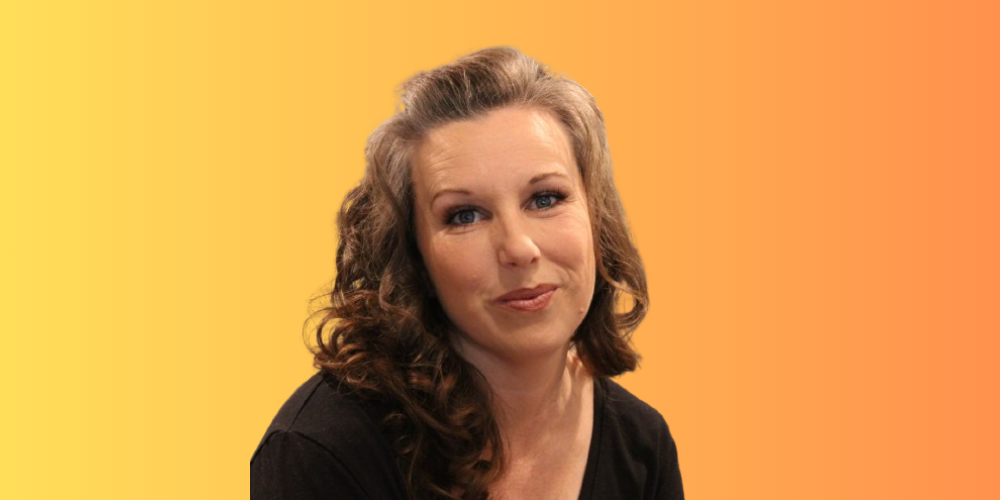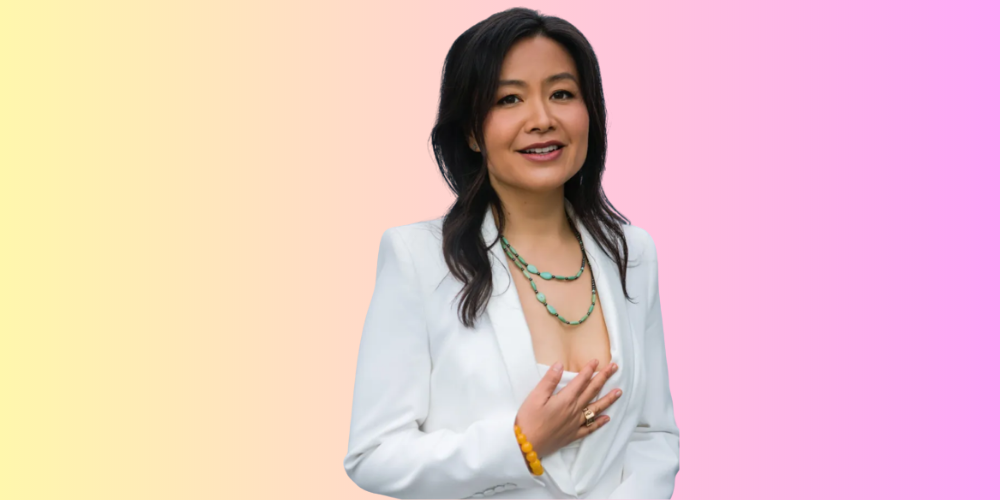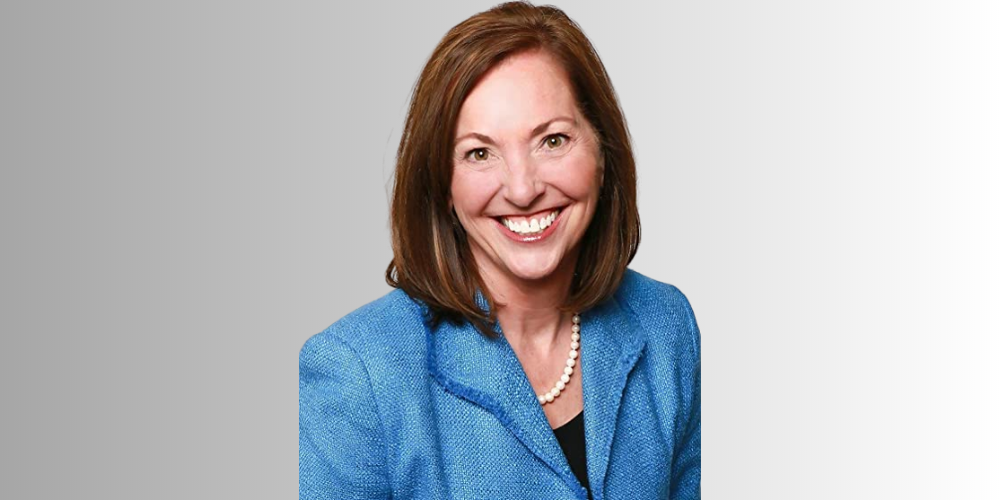Raj Girn: Thanks for tuning in to yet another exciting episode of the ‘Transform Your Confidence Show,’ where I’m so happy to see you tune in each week, either through podcast stations or on the YouTube channel at The Open Chest® Confidence Academy. Thank you to all of you who have been reaching out to me to tell me how much you’re enjoying and learning from the show.
This show’s debut month of January was dedicated to a four-part series called Leadership: Communications is All in the Mind because I wanted to set the scene right from the get-go on what it feels like to live that big picture moment, and to lead with intention and purpose to get there so that when you do get there, truly attaining that position is something that will motivate you to do all the work that you need to be able to get there. And what that requires simply, and I say this over and over again in every single episode, is it requires the appropriate knowledge and resources, actionable steps, and an accountability support system. For those of you who are tuning in for the first time, welcome and thank you for giving this show and me your time.
I encourage you to watch the first four episodes of The Open Chest® Confidence Academy on YouTube or listen to the ‘Transform Your Confidence Show‘ on podcast platforms everywhere. Now that we have set the view at three hundred and sixty degrees at the top of your mountain, I have structured this show so that you can get real insights on how to get to where you need to go, through a step-by-step process that is holistic in nature because it’s with the full mind, body, soul experience that you’re able to actually stay there once you’ve done the climb.
From this week onwards, I will be covering specific topics with you and with my guests:
👉 Week one will be Mindset and Clarity.
👉 Week two will be Media and Communications.
👉 Week three will be Branding and Marketing
👉And week four will be Leadership and Advocacy.
These are my areas of expertise, as well as the areas that the academy is focusing on. So with this being week one, the show is on Mindset and Clarity. And my special guest is international mindset coach and certified emotional kinesiologist Belinda Ginter, who is going to be joining me in this episode entitled How Mind Set Creates World-Class Leaders.
Here is Part One of our conversation:
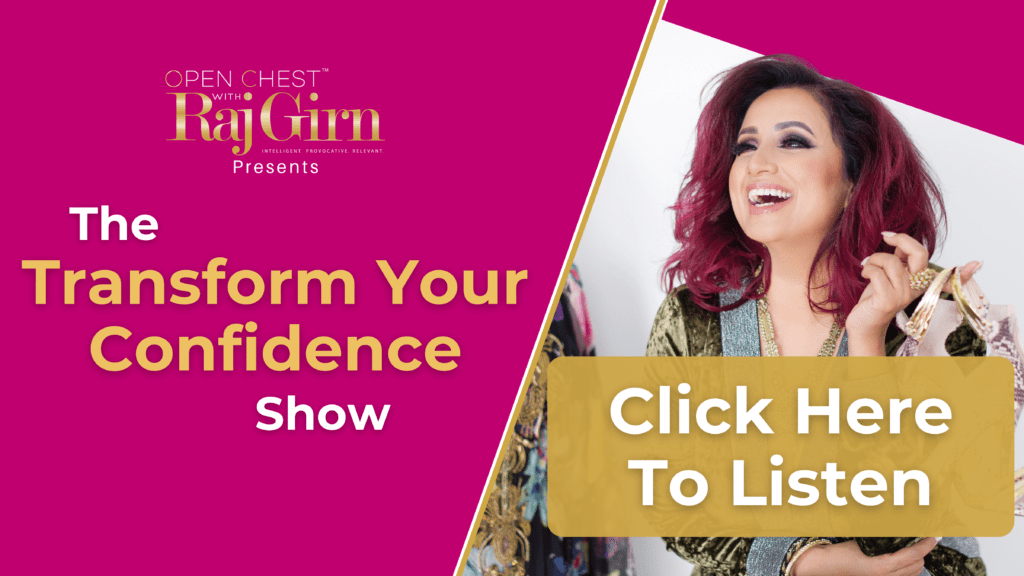
Here’s a bit about Belinda. Her experience is vast, with over 6,000 plus clinical hours where she has worked with thousands of clients from around the world, both in the personal and professional arena. Her advice has been featured in ‘Cosmopolitan,’ ‘Business Insider,’ ‘The Huffington Post,’ ‘Thrive Global,’ and ‘The Globe and Mail’ to name a few. She is an international speaker and has taken the stage in many countries including the United States, Canada, the United Kingdom and Portugal.
Belinda`s superpower is that she takes mindset coaching to a much deeper and more meaningful level than most of her peers. Where they may fail or give up, she succeeds and presses on because she is able to marry her extensive knowledge of emotional kinesiology with mindset practices, to be able to help her clients get over even the most difficult hurdles and have breakthroughs. She works intuitively, directly from a soul level, being adept in removing negative past family programing that her clients are often unaware is keeping them stuck. Here’s a deep dive into what mindset is, when to use it and how.
Belinda, I am so excited to have you on my show.
People don’t really know why I decided to go into this entire concept and branding around a confidence coach. A lot of people ask me that. And those that do, I share it with them. Because since 2017, I have been coaching executives and entrepreneurs, but more so from the perspective of communications branding — my wheelhouse being that I come from a media communications and marketing background. But it wasn’t until I had one solitary session with you and then a number of them afterwards, until I actually understand what I was doing.
And I think the big shift for me, and I want to create that context around the conversation that we’re going to have today, is that when I first got into the whole idea of coaching, it was more, okay , what do I bring to the table? What are my skills? What am I doing for you? I wasn’t looking at it from the perspective of what is the outcome that this person is getting from me through ABC . . . Z. And that’s what the mind shift was that changed the game for me and really ultimately started me on this journey of The Open Chest® Confidence Academy. And all the things that have come about since then and all the things that I’m planning to do with it over the course of pretty much the rest of my life. Belinda, I want it on record in front of everyone that I want to say to you, thank you so much for getting me within moments as to what my core value was that I was bringing to the table. Because when I came to you and I said, “Belinda, I’m so confused because I do all these things.”
Belinda Ginter: Yeah. Oh, you’re so multi-passionate.
“This is exactly why I come to you each week as your support system to motivate you and remind you that to learn is to be more, and to be more is to expand your opportunities beyond your current reality by empowering your ability to do so through knowledge, action and accountability. The three pillars upon which I created the Open Chest Confidence Academy, which is for those of you who are ready to do the work to get there.” ~Raj Girn
And that was it. And you were like, “Raj, there’s a lot of things you do, but what are you doing for others? What is the big picture? What is your zone of genius?” And you said you’re a confidence coach, Raj. It was that simple. So I really want to tell you guys that I couldn’t think, when I was planning on introducing mindset, clarity in that whole kind of concept around how to use that to better your life on all levels, the first person I thought of, the first person I wanted to be on this particular show was my girl, Belinda. So thank you so much for agreeing and being available to come on.
I’m so overjoyed. And that story just makes my heart sing. It really does, because when you’re in it, it’s hard to see it, and that’s why you just need an outside perspective to kind of lay it out for you. And then once you have that clarity, the sky’s the limit like you’re proving. So I’m just honoured to be part of your journey.
And you will continue to be. I hope you really do.
Always.
You are one of my mentors, my dear. And I can’t wait to share your wealth of wisdom with all of the wonderful people out there who are watching this and who are also listening to it.
So I want to dive right in. Are you ready to do it?
Absolutely
So I want to first start, because this whole concept of mindset and clarity and what that is has become very kitschy, as you know, over the course of the last little while. So I want to begin by setting a bit of an idea behind what is this concept of mindset. So we can clearly create clarity around what it is rather than what people may think it is, since everyone seems to think that they are a coach today and everyone seems to think they are a mindset coach.
But this area of education, this experience is a lot of things that you have to hone in on to make sure that you are actually being healthy when you are providing that value. So, from my perspective, I have this kind of idea behind what it is. And I want to share that first. Just to preface, according to rewireinc.com, mindset coaches are dedicated to rewiring an individual’s mindset, allowing them to be the very best of themselves and to unlock their full potential.
“Mindset coaches are dedicated to rewiring an individual’s mindset, allowing them to be the very best of themselves and to unlock their full potential” –Rewire Inc.
So I want to begin, Belinda, by asking you, first of all, is this accurate, considering you are not only a mindset coach, but you’re also an emotional kinesiology expert, from a belief and practice perspective. Do you believe that? And if you do, can you tell me what about it do you believe, and if you don’t, what you don’t believe?
Yeah, I love the question, first of all, and I do love mindset. It’s becoming more of a broad term. I don’t regret it. I love when I’m watching an NFL game and they’re saying, “This player changed his mindset and we’re seeing him play a different way.” But you’re right. I’m a certified emotional physiologist first, and I really resisted even being called a mindset expert, mindset coach, but when it started to happen, everybody I was working with or I would go on a podcast such as this one, they would just change my name. And I often believe that God, the universe, speaks through people’s actions because I would even say to people, why did you change the name on the bottom? And they would be like, “Oh, I didn’t even realize I did it.” So I really got to see that I was being pushed in this direction.
“I often believe that God, the universe, speaks through people’s actions” -Belinda Ginter
And as you mentioned, there were so many mindset coaches out there. And quite honestly, I didn’t want to be linked to a number of them. And no disrespect for them, everybody’s on their own journey. But I wasn’t loving what I was seeing, I wasn’t seeing the excellence in the industry in that way. And I really love the quote you read. But the only thing I don’t love about it is that almost the way it’s worded is that the mindset expert of the mindset coach is taking credit for the client’s work. And I can only suggest as much as the person is coachable. I can’t rewire your brain. You rewire your brain. So, although that’s a really good general term about what we do, we absolutely can change thought patterns. We can get rid of a lot of past family programing and things that have been sitting there generationally for years. But it is the client’s success, not my success as a coach.
That is so interesting that you would say that. So basically in essence, what you’re doing is you’re empowering your client rather than enabling them, whether they use you as an anchor for their life and for their journey of love. That is so powerful, Belinda. I think that’s a key difference between a lot of different ideologies out there. I am more empowered with what I’m hearing you say. I am more empowered because I empower you to empower yourself, right?
Absolutely. Because that will create sustainable success. And I’m not interested in working with anyone that I don’t get sustainable success. Some coaches are happy with the one-hit wonders and things like that. I think that that is robbing someone in the industry. If you can’t create lasting success, then you shouldn’t be working with that client.
I love that. So powerful.
“You can teach a person to fish or you can fish for them. And that’s really how I view mindset is that it should be putting the client in a power position.” -Belinda Ginter
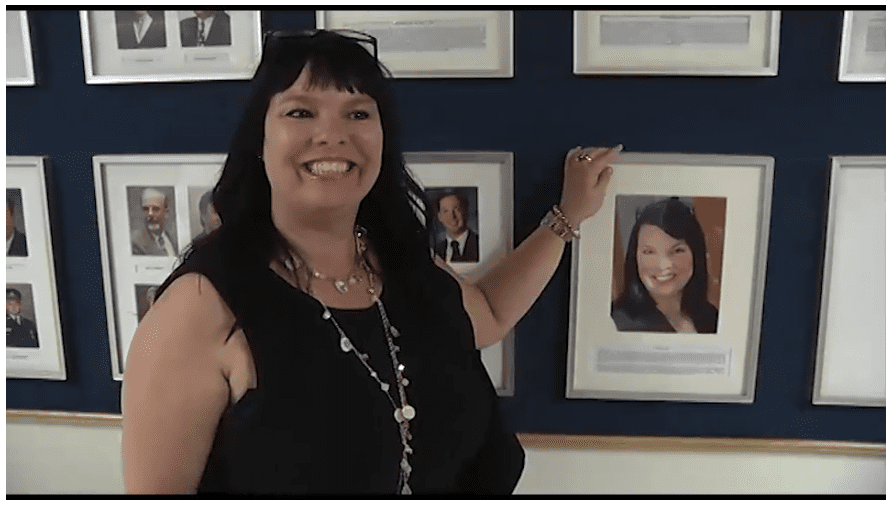
Credit: globalnews.ca
Absolutely. So, guys, any of you out there who haven’t actually really enlisted a coach ever these are things to think about. The certain criteria that differentiate those who are there to actually not have you as a client because it means they’ve been successful, or to have you as a client because now you’re going to that next stage of growth and then the next, because there’s never an end to our capacity as humans to grow. Right, Belinda?
Absolutely. And my husband always says the best coaching I ever did was when I was on my dad’s bedside in palliative care. And he had such a fear of crossing, such a fear of going. And I had to lock eyes and right to his last breath, I was doing mindset coaching, easing the way and giving him the vision to leave. And it was from that moment on, I realized that mindset never stops. You don’t hit an ending point. It’s just kind of like a beautiful onion — you’re just taking back the layers slowly by slowly.
Absolutely. I love that. And, you know, this actually brings me to another question that I know a lot of people out there have, who don’t know much about mindset. So I’m going to kind of continue with that realm for a little while.
Are there any different types of mindset that people need to know about that are used in specific circumstances in the professional arena that people should consider? And if so, can you explain the types of when to use them? Because there seems to be a lot of gray area around this for a lot of people looking from the outside in.
Yes, it’s confusing for me and I am a mindset coach. So it’s just like when I’m trying to enlist my next mindset coach because I’m constantly working on myself so I can bring the best of my clients, and you should never work with a coach that’s not being coached. That is my belief system. Yeah, they have to be willing to put skin in the game and up themselves and really work on themselves too. There are many different types of mindset in the way of the corporate setting or the professional setting, everything that happens in your life plays out in your corporate setting. So like a lot of things that come up for professionals are a money mindset.
“You should never work with a coach that’s not being coached.” –Belinda Ginter
That’s a huge one, right?
It’s a gigantic one professionally because they often feel that they’re worth a set amount. So if there were an employee, they feel like the number that was given to them when they started — that their wage now defines them. And so one of the things I love to dig deep with them on and really explain this, when I was in corporate, I remember sitting in a boardroom once. We had not seen any resumes yet. We were simply going off-budget and we picked a salary for our position strictly from the budget before we’d even seen anyone’s resume. And it really hit me hard after because I thought, oh, my gosh, these people who apply from now on are going to apply for that dollar amount because they think that we based it off their skills or off their qualifications, and they’re not going to apply for higher level jobs or higher level wages because they’ve adopted the belief system that this number has a meaning, but it had no meaning.
Right. It’s numbers, it’s budget numbers.
But if you talk to people when they are applying for positions, they don’t go from a $30-position and apply for a $60- or $70-dollar position, which is so disheartening because many times they are qualified. So money mindset comes into play a lot. And if they’re not feeling they’re getting paid their worth, then that can negatively affect them in the workplace as well in their relationship with their coworkers, with their boss, and so on.
Yeah, that’s a big one. Guys out there, if you’re listening and if you just tuned in, I am talking to mindset coach and emotional kinesiologist, my dear friend and mentor Belinda Ginter.
Belinda, I want you to actually let people know how they can get a hold of you if this is something that they are struggling with. We are talking about a money mindset right now. Now, guys, we will be going into other aspects of this. But if this is where you are really at a crossroads in your life, you really do need to chat with Belinda about this. How can people get a hold of you Belinda?
“They can go to my website, belindaginter.com, also [email protected] is my email. Give me a phone call, I’m old school, +1 416-705-7974. We can make it as personal as you want it. I’m always available.” -Belinda Ginter
That’s wonderful. I love it. And do you do like one-on-one or do you do group coaching? What is your style of dealing with your clients or does it depend.
It depends. I do have a monthly subscription when someone just wants to dip their toe in. Maybe they’re not ready yet to make a big commitment because I do ask my clients to make a commitment, not to me, to themselves and to the mindset. Though it really has nothing to do with me, but it has to do with them saying that for the next year I’m really going to work on my mindset and I’m going to commit to that.
So for those who aren’t quite ready for that, I do have a monthly mindset subscription at a very low price point where they can kind of dip there toe get to know me, see the quality of the questions I ask and how they start to get results. And I am very confident that even if they started that, that low price point, they would soon be ready to go at my one-on-one price point.
Absolutely. And I absolutely can attest to that. Anyone out there, you guys who know me well, you know that I have a great deal of pride in the amount of work I’ve done to become of the woman and the person that I am today. I continue to work with mentors, consultants and coaches in all aspects of my life.
It changed the game for me about 15 years ago when I discovered that it was okay to be vulnerable and accept that there are certain things that I cannot get to without assistance. And it has been a long journey for me and one that I would never change. I have so much respect for the woman that I’ve become because I have enlisted in the aid of multiple consultants, coaches and mentors. If anyone out there listening, and you’re anything like me at the beginning where I felt if I was to ask anyone to help, that it would mean that I think less of myself, I actually feel it’s the reverse. I think that if you don’t ask for help, it means that you don’t have enough respect for yourself based on that.
Belinda, I know that you probably get people who come to you with that mindset. I’d love for you to maybe share a little bit around that. Maybe people can shift a little bit there and understand that acknowledging the truth of who you are in a very open and transparent manner is the best way for you to be able to grow through the stretch of the pain, because that’s that’s a whole formula.
Yeah.
And I say this all the time, Belinda. I say that people come through, they said, “Well, that’s just too much. I don’t want to go through that.” And I said, “Well, then you’ll stay where you are.” That we all have a choice in life and the crossroads is different for everybody. So tell us a little bit about your thoughts about those people who feel that it’s a weakness if they ask for help.
So first of all, there’s pain on each side. So, If you’re overweight and you’re trying to lose weight, there’s inflammation, there’s pain, there are aches in the morning. It’s painful over here not to lose the weight. And over here, when you lose the weight, it’s hard because it takes repetition, it takes commitment, it takes showing up. It takes sore muscles. So both sides, there’s pain. But I’d rather choose the pain where I’m advancing. And so there’s strength in being vulnerable. There’s the strength of being real. And what you realize quite quickly is we’re all the same. And even if we have a bigger social status than someone or a bigger income or a bigger following, we’re on the line now. It means nothing. And so when you realize that, then you can easily share what’s bottled up inside because you seem like you’re just like the next person, nobody is clear of their stuff. We all have it.
“Allowing yourself to be vulnerable is the biggest strength you have and it’s the biggest power move you want to talk about.” -Belinda Ginter
Everybody’s into ‘The Queen’s Gambit’ and chess right now. You want to make that checkmate. That is your power move, being vulnerable, asking when you don’t know, going to someone who’s more knowledgeable. I don’t build a website because it’s not my zone of genius. I go to the people who are passionate and are skilled and have that as their zone of genius. Same with your health and your mental health.
Absolutely. So you heard it right there, guys. And if you’re still not convinced, stick around.
We’re going to be unpacking a lot more around the whole idea of mindset. But before we move on, Belinda, I know that a lot of people are probably not too sure what an emotional kinesiologist is. And since you just kind of used an analogy around physicality there with the weight loss, let’s talk a little bit about it, because a lot of people look at kinesiology from the perspective of our relationship to the physical being that we are. So let’s talk a little bit about what emotional kinesiology is first before we move on.
I would love to. And your concept in your head, I can tell you right now, is right. You’re thinking about muscle testing. You’re thinking about how muscles react to movement. And that is all correct. Just like physical attributes and genes that come down from our parents and from our grandparents and what not into our body when they’re born, we also have emotional attributes and emotional genes and emotional stuff that comes through from generations before. So what emotional kinesiology does is it tests your muscle to see what negative emotions are sitting in which organ and why they’re there. Because people can’t move past anything until there’s clarity, would you agree?
“What emotional kinesiology does is it tests your muscle to see what negative emotions are sitting in which organ and why they’re there. Because people can’t move past anything until there’s clarity.” –Belinda Ginter
Oh, my gosh, absolutely. You’re stuck there.
Once you have clarity, it’s easy to see next steps. It’s easy to get in the momentum. It’s easy to be productive. But until you see the clarity and are stuck in that indecision or you don’t know why, you can’t move past it. So I use emotional kinesiology for when the mindset and all of its glory and its techniques and its practices get to a point where we can’t get past a certain pattern, when the person just continues to self-sabotage and we don’t know why. The thing with emotional kinesiology is it’s my secret weapon that I pull out when I know it’s subconscious. And so, once I do that, we get the answers completely from the body and we’re able to move ahead. And we do that by using the power of forgiveness, which is always our biggest strength, which again is something that people have so much resistance towards.
Especially towards themselves, Belinda. Guys, if you are just tuning in, I’m speaking with an emotional kinesiologist. She’s also a mindset coach. Her name is Belinda Ginter. And the thing that I love about this lady, other than the fact that she is my mentor when it comes to mindset, she shifted something for me about three years ago that took me on this journey where I felt that all of the things that I’d gone to throughout my years have a purpose, and that the purpose is the service that I am now building out for all of you guys, The Open Chest® Confidence Academy is where I’m housing it all.
And it allows me to be able to see how everything that I have been and everything that I am today is something that I can offer up to people who maybe haven’t quite gotten along the journey to where I’ve gotten to. And I hope to do it from the perspective of not it taking you five decades the way it has with me. I’m 50 years old. I want to be in a position where you guys can really, really zip past a lot of the things I have had to go through.
And I know that’s the case with you as well, Belinda. I mean, a lot of what we do in our service and why we’re so compelled and passionate and purpose-driven with what we do has to do with the fact that it took us so long to get here.
Absolutely. Well, you know, my past is I grew up on welfare. I grew up on the system. I was in Peterborough Housing. Our townhouse was subsidized. I got the Salvation Army Christmas. I was that girl. And I kept looking around at all the adults around me and I couldn’t understand why they couldn’t see their own pattern. I couldn’t get it.
And so I think my advice was taken less with open arms back then, because here is like a five-year-old telling you exactly what you have to do to kind of pull yourself self out of the stuff that you’re in right now. But really, it just came so clearly to me. And what I love about what you said is that I feel a responsibility now that I’ve so-called “made it,” whatever that means, that we all have our own idea of what it is to turn around and we offer our hand down to the person that’s trying to get up the stairs.
And I see that that is what The Open Chest is. It’s turning around and saying, “Okay, I’m up here. I’m bringing you with me. Just hold on. Let me speed track you instead of going up all the flights of stairs. Let’s use that zip line and get you to where you need to be.” And I think that’s a responsibility I hold dear. And I know you hold dear too Raj.
Absolutely. Belinda, we are kindred when it comes to that. So I want to ask you something further about that. There’s been a lot of focus on the importance of mindset shifting in corporations in recent years, right? So the best companies to work for today, according to all kinds of reports, are those that assign budgets dedicated to this along with social responsibility and diversity and inclusion. So clearly, there’s a huge shift taking place in our corporate and entrepreneurial ecosystems brought on by an overall shift that’s taking place in society at large. And our expectations of stakeholders in general today.
It’s like, people aren’t, being thankful for the crumbs that they were being given. They’re demanding the right and they’re worth a lot more with generations past us, Belinda. If you look at the millennials, you look at the gen Zs. I mean, they make up seventy over 70 per cent of the workforce in North America today. So corporations have to stand up and listen. And they’re a very different generation to mine and my parents.
Especially the generation ahead of us, you were just lucky to have a job. You just shut up. You went and clocked in. You said nothing. You didn’t oppose anything. You took any conditions and you were grateful when you left.
Absolutely. And that was kind of your corporate pyramid system, right, where the CEOs sat at the top and then you went down the food chain. And it’s interesting because now there’s this whole concept and idea behind the inverted pyramid where employees are sitting at the top and then you funnel down to the CEO at the bottom, which basically for those of you who aren’t familiar with that particular perspective, basically means the CEO and the stakeholders, the powers that we seriously listened to, those people who are working the machine for them. So this is a far cry from the top-down ideology of the last few hundred years or so.
Belinda, I wanted to ask you from that perspective, because, it really means that collaboration is truly coming into play, not just in society, but also down the food chains of the work environment. Obviously, a lot more work needs to be had, but that’s a whole other show. From the perspective of what I wanted to address with you is, do you feel that mindset shifts are able to create more efficiency in the work environment around this idea of allowing everyone to kind of sit at the table?
I definitely believe that. And I think although we may be a far cry from where we have to be, we’re going in the right direction. We’re seeing many changes. We’re hearing stories of employees at Southwest that they made the suggestion that they roll out that actually failed, but they still get a massive bonus for being innovative. We’re seeing WestJet like another airline, making people stakeholders. We’re seeing Oprah bring in a wellness team, like to get a massage and stuff for her corporate people.
We’re seeing Arianna Huffington letting people take naps and the list goes on and on and on. Virgin Mobile was giving endless holidays and I think everybody’s trying to find the secret sauce in this thinker way. And I don’t think it comes through that. I think that helps definitely, of course. But I think it can be very small. You hired these people for a reason. Why wouldn’t you listen to their ideas? You obviously thought they were incredible humans enough to trust your company with them. So why not hear what they say and why not let them even suggest something that doesn’t work?
Because that builds their confidence. Because you know what? The next thing they may say may be a multimillion-dollar idea that takes your business to the next level. And I think the mindset often has to happen at the top. I’m finding with the CEOs. because letting go of their ego or letting go of what the CEOs before told them, because the advice, although it was great in that generation, does not apply to what we’re dealing with today. So it’s hard to be humble and it’s hard to go against the grain of how people have done it in the past, but that’s innovation and that is where you’re going to see the biggest mindset shifts. But I’ve seen it both ways. I’ve been called into a company too where the top, the CEO wanted to retire, but the people below him were just his sons, who just wouldn’t step up to the plate and they couldn’t do that.
“It’s hard to be humble and it’s hard to go against the grain of how people have done it in the past, but that’s innovation and that is where you’re going to see the biggest mindset shifts.” –Belinda Ginter
So we had to do a lot of work around their mindset. And their whole mindset was they didn’t want to do better than their dad. So they literally weren’t even putting their name in the hat, because they didn’t want to do something and outshine their father or make their father feel wrong for how he ran the company here. He’s just thinking they’re lazy, like, why aren’t they stepping up?
And when we really dug deep, it was really this heartfelt mindset shift that we had to make that, no, he wants you to be innovative. He wants you to step up. He wants you to try your ideas, make it better, you know. And then the other thing, they didn’t want was to fail.
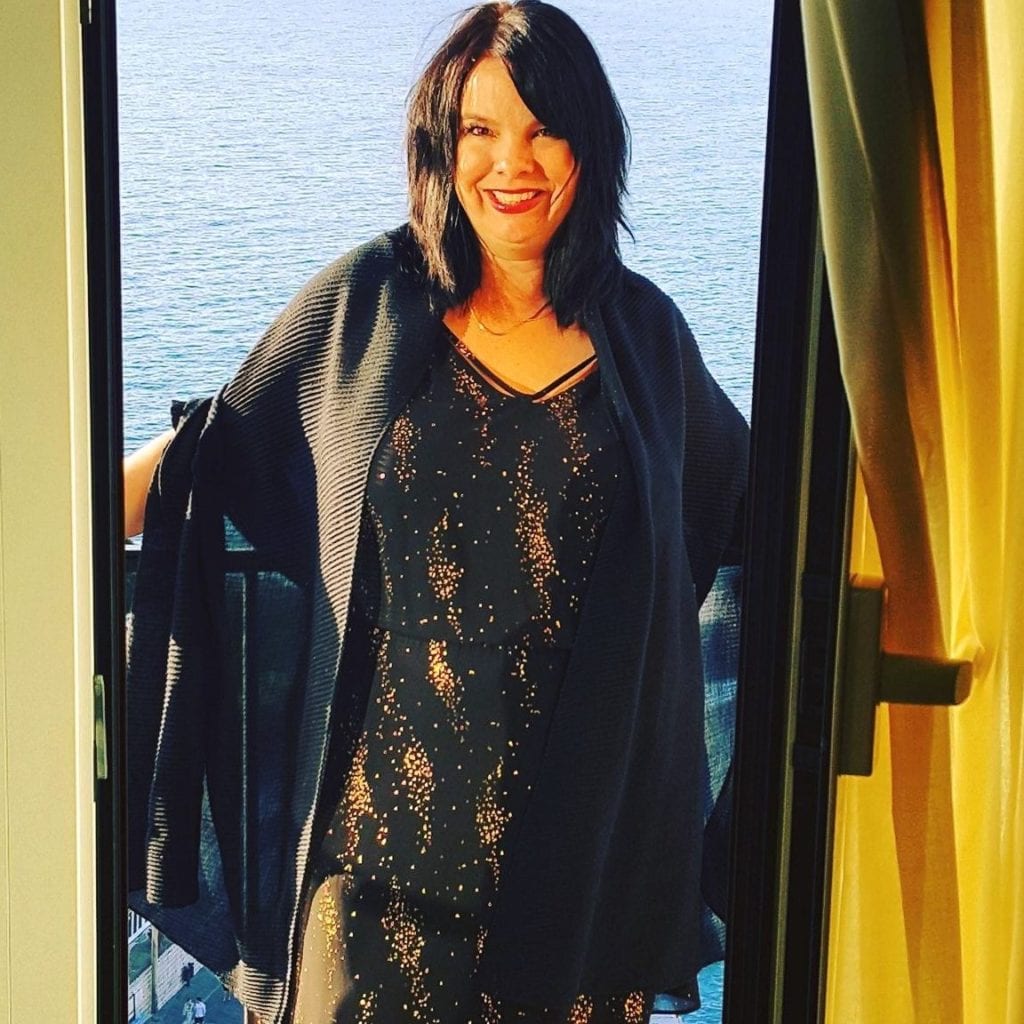
You know, when you see someone who’s put their heart and soul into a business, you care so much that you will actually sabotage yourself so that you don’t step up to the plate and fail and take something away from that company. So it happens that all the different levels, and then the secretaries were scared because all they knew was the CEO. Would things be okay if he retired? You know, it just filters all the way down and all the way up.
That’s a lot of work that you’d have to do.
And for one thing to happen, the CEO to retire, look at all the mindset work I had to do with that team for that one person to retire.
Incredible. Guys, you’re hearing it right here. I mean, those of you who are not believers, I hope that you’re starting to shift your thought perspective around this because it’s always better to have as many different perspectives as possible, especially those that you’ve never entertained, to allow you to stretch your idea behind how something could be done better. And that’s a lot of what Belinda does. And I wanted to ask you just based on what you just said because you just said a lot about mindset, leadership and job performance. So I’ve got a question that I want to bring to you around that. So what is the correlation between mindset’s leadership and job performance that people need to understand in terms of cultivating a workforce advocacy culture?
“It’s always better to have as many different perspectives as possible, especially those that you’ve never entertained, to allow you to stretch your idea behind how something could be done better.” –Raj Girn
Well, we’ve seen the stats. If someone’s going through something at home, they’re going to be bringing that into the office. We’ve seen the stats on what happens when someone’s going through a divorce, like their productivity goes down so much and they can’t pull it together. So again, because we’re not individuals that can be at different places, we try and we put on these masks. But those masks never last for long. They’re temporary and they kind of melt away and we don’t even know when they’re melting away. So they’re better not even to do it. But really, mindset is everything.
So when you kind of look at the whole person and their happiness in every aspect of their lives, and make sure they are good going into the workforce, productivity goes up. You know, they’re more innovative. They’re more creative. They take chances. They take risks. They’re loyal. They stay longer. These are all the things we’re seeing happen to incorporate when we really start to implement some mindset into what they’re doing and where they have an outlet.
You know, most people don’t realize we live in these big cities, in these towns, and a lot of people don’t have a community outside their work community. And that’s why we see a ton of depression when people retire or when they get fired because they’re kicked out of the community. But if these people have a mindset place to release safely, that’s confidential, where they can just be themselves and just get themselves in their peak performance, watch out because they are the best employees you have ever had, because they feel so honoured and so seen and so heard. And that is the biggest human quality people are striving for these days.
Thank you so much for staying until the end, guys. I really hope you enjoyed the show and will action the many insights that were shared. You guys know by now that I always say knowledge without action doesn’t change a thing. And I really believe that because I’ve seen it time and time again over my years in the entrepreneurial space. If there’s one takeaway that I want you guys to always take and weigh each and every week, it is this, that in order to create a bulletproof strategy, you must marry knowledge with action and accountability. Without these working together when you hit an uphill battle, you won’t have a net to catch you if and when you fall.
Before you leave I would love you to support me by subscribing to the podcast on Apple and Android platforms everywhere and at The Open Chest® Confidence Academy YouTube Channel. And please, if you feel this is of benefit to anyone that you may know, invite them to listen and subscribe. Also, I sincerely appreciate your support. And as always, I look forward to seeing you next week.
To Contact Belinda Ginter: Instagram @unstoppablebelinda_ Website: www.belindaginter.com Email: [email protected] Phone: +1 416-705-7974








